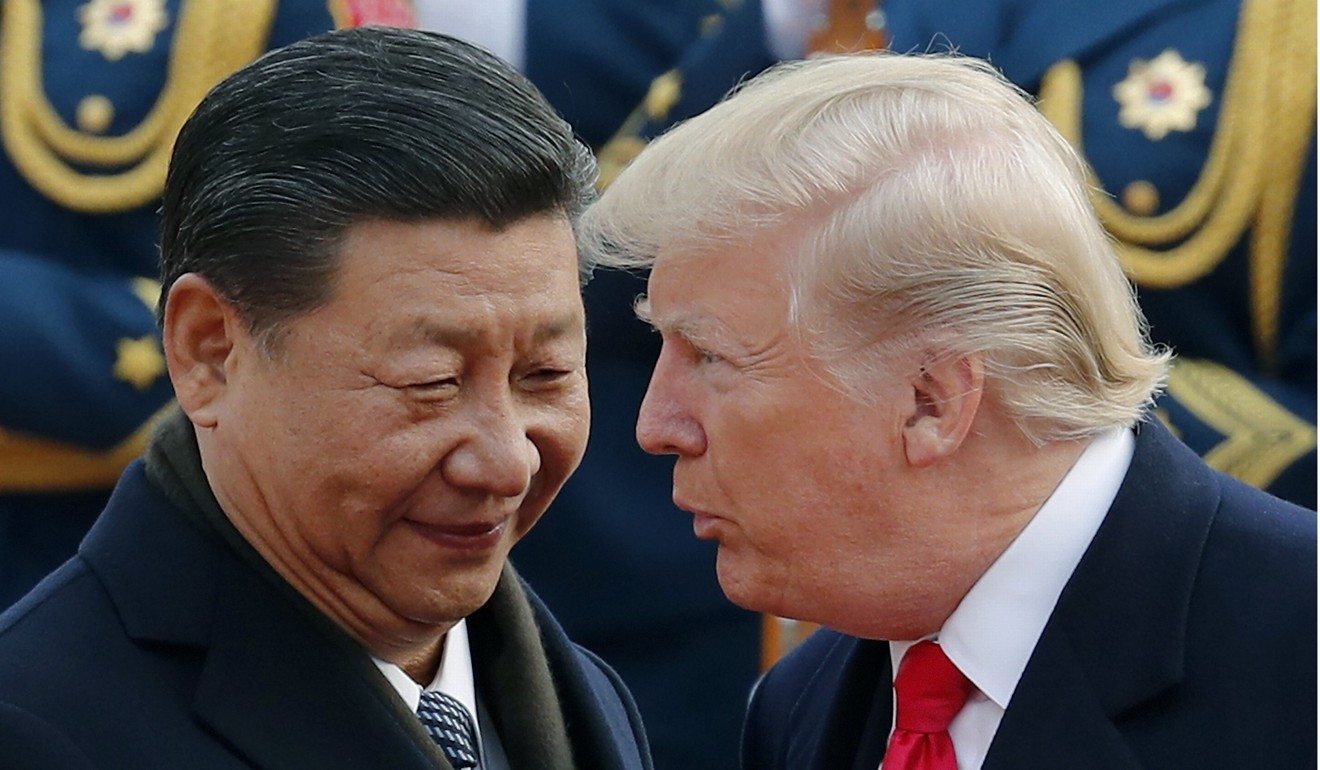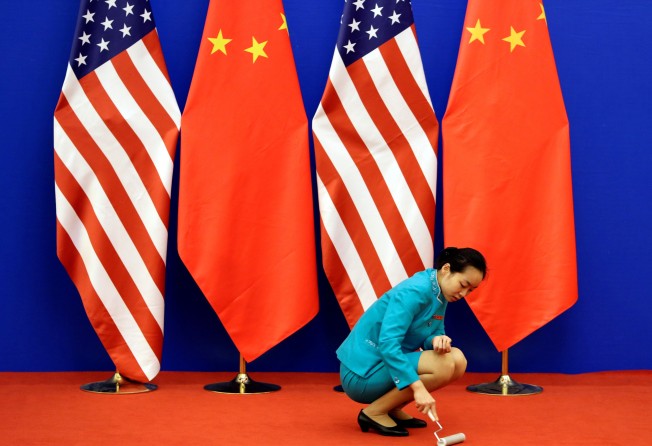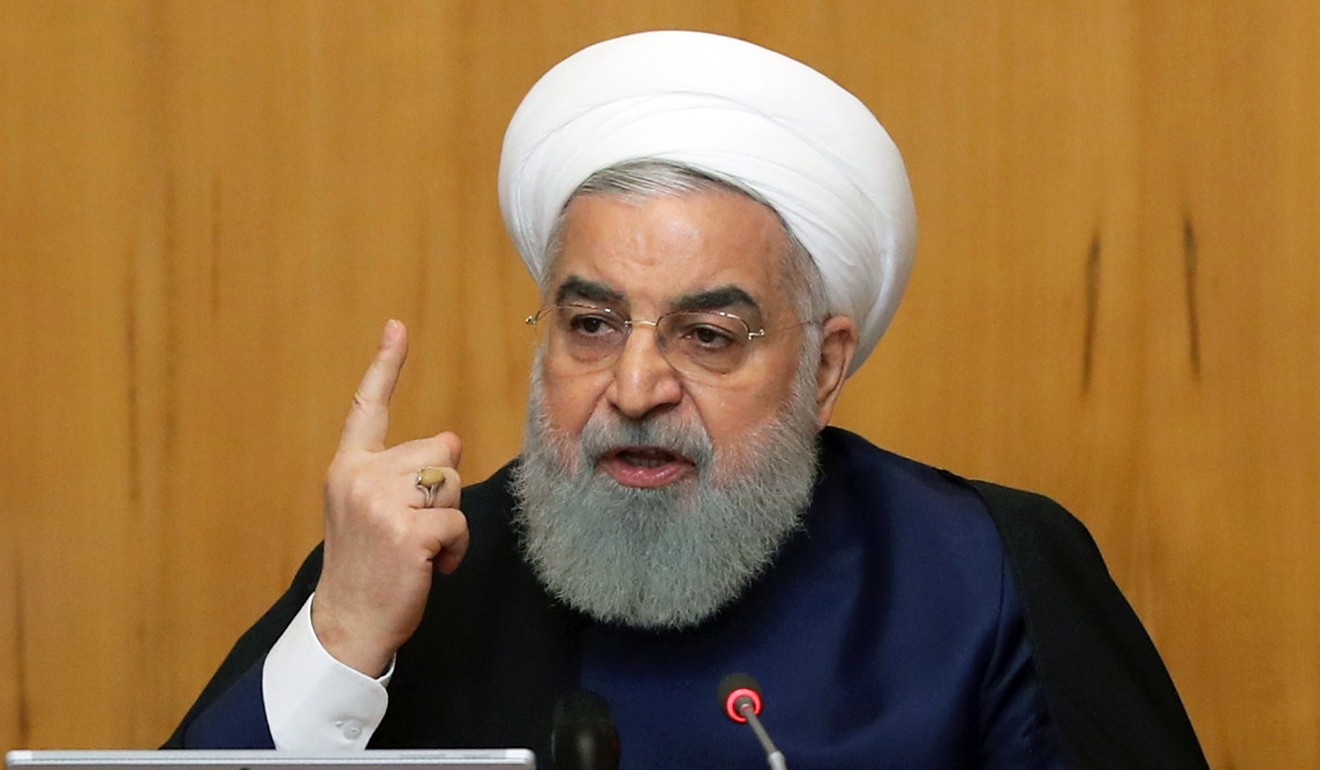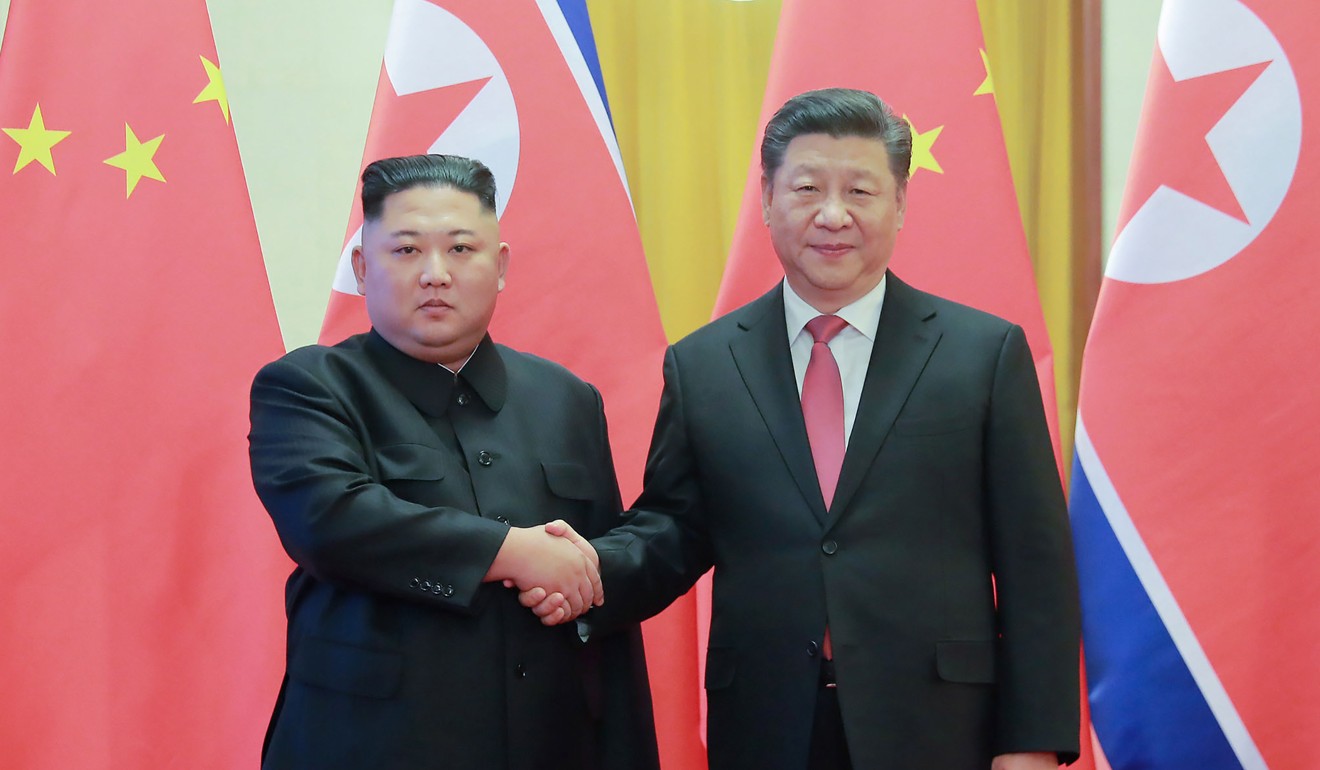
If Xi can matchmake Trump and Korea’s Kim, why not Iran’s Rowhani too?
- Xi Jinping’s Pyongyang visit could see a trade-off between the US-China trade row and denuclearisation, which both Washington and Beijing want
- Likewise, the US and China can also find compatible and complementary interests in the Middle East, where the US is posturing towards war with Iran

Chinese President Xi Jinping’s just-concluded visit to North Korea, which occurred a week ahead of a meeting with his United States counterpart Donald Trump on the sidelines of the G20 summit in Japan, may suggest that a likely trade-off between the US-China trade row and North Korea’s nuclear ambition is in the offing.
Many analysts believe Xi’s visit, the first in 14 years by a Chinese head of state, was aimed at gaining leverage for his upcoming summit with Trump – and thus Xi may also help broker a deal between Washington and Pyongyang.
Trump has repeatedly suggested there will be such trade-offs between the two issues as he is eager to make a breakthrough ahead of the US presidential elections next year, following the February collapse of his second summit with North Korean leader Kim Jong-un in Hanoi. South Korean president Moon Jae-in said he hoped Xi’s visit would help end the nuclear stand-off. Obviously, Xi’s high-profile trip serves to remind Washington that Beijing can either help or complicate Trump’s pursuit of ridding Pyongyang of its nuclear ambitions.
The US and China are now locked in an escalating confrontation on anything and everything, ranging from trade, technology and human rights, to the military and geopolitics. But the North Korean nuclear issue seems to stand out as an exceptional case on which both powers can find common ground and cooperate, as Pyongyang’s ambitions serve no one’s interests and serve only to destabilise Asia, the world’s most dynamic region.

However, the parallel development that sees the US and Iran locked in a spiralling row over Tehran’s nuclear programme may also provide an opportunity for the US and China to cooperate, as Xi has just met Iranian President Hassan Rowhani on the sidelines of the Shanghai Cooperation Organisation (SCO) summit in the Kyrgyz capital Bishkek on June 14.
Tensions between the US and Iran have mounted steadily since 2017, when Trump withdrew his country from a landmark nuclear agreement between Tehran and the P5+1 group of nations – the five permanent United Nations Security Council members plus Germany.
The US-China and US-Iran tensions have helped propel closer Chinese-Iranian ties based on their shared trade and geostrategic interests. In their talk, Xi and Rowhani pledged to forge a closer strategic partnership amid the US threat.
The Trump administration upped the ante early this month by tightening its sanctions on Iran, as well as sending an aircraft carrier, B-52 bombers and up to 120,000 troops to the Persian Gulf, in response to Iran’s recent announcement on the resumption of its long-range missile programme.

The US-China trade war also helps nurture better trade relations between Beijing and Tehran, as China sorely needs Iran’s oil and Iran needs to increase its Chinese imports on a barter basis, amid US sanctions. Under punitive American tariffs, China needs to diversify its trade away from the US to other markets, and Iran is one of a few such lucrative destinations.
As the US is preparing for a possible war against Iran, Washington is particularly concerned over whether Beijing and Moscow would provide material support to its enemy. The fact that the handy network of infrastructure across Central Asia being built under Beijing’s Belt and Road Initiative would help give China and Russia military access to the Middle East is not lost on Trump.
Beijing and Moscow have joined hands to block the US’ strategic and military objectives in the region. For instance, they worked together to block US efforts to censure President Bashar al-Assad of Syria, an ally of Tehran, at the Security Council in 2012.
A war against Iran, like its previous wars in Iraq and Afghanistan, would further weaken America’s geopolitical position vis-à-vis China at the worst possible time, as Washington and Beijing are also locked in a steady escalation of rivalry and confrontation.

However, the US and China can also find compatible and complementary interests in alleviating tension and de-escalating conflict in the region, as Washington and Beijing may have different but non-conflicting objectives, at least in the short term.
While Washington focuses on maintaining regional stability, anti-terrorism campaigns, and defending allies in the region, Beijing may focus on expanding trade, investment and the exploitation of the energy it badly needs. As in the case of North Korea, Iran’s nuclear programme will do nothing good for US geopolitics nor Chinese geoeconomics.
As the potential for conflict with Iran increases, Trump appears to be looking for a way out: he said he would “like to see [Iran’s leaders] call me”. If Trump can “fall in love” with Kim, whom he once called a dictator, why can’t he have similar affection for Rowhani? If Xi can help Trump achieve a denuclearisation agreement with North Korea, why can’t these leaders, who call themselves good friends, make one more deal on Iran?
If the US and China could strike a trade deal, it would greatly help the global effort to resolve the nuclear crises surrounding North Korea and Iran. ■■
Cary Huang is a veteran China affairs columnist, having written on the topic since the early 1990s